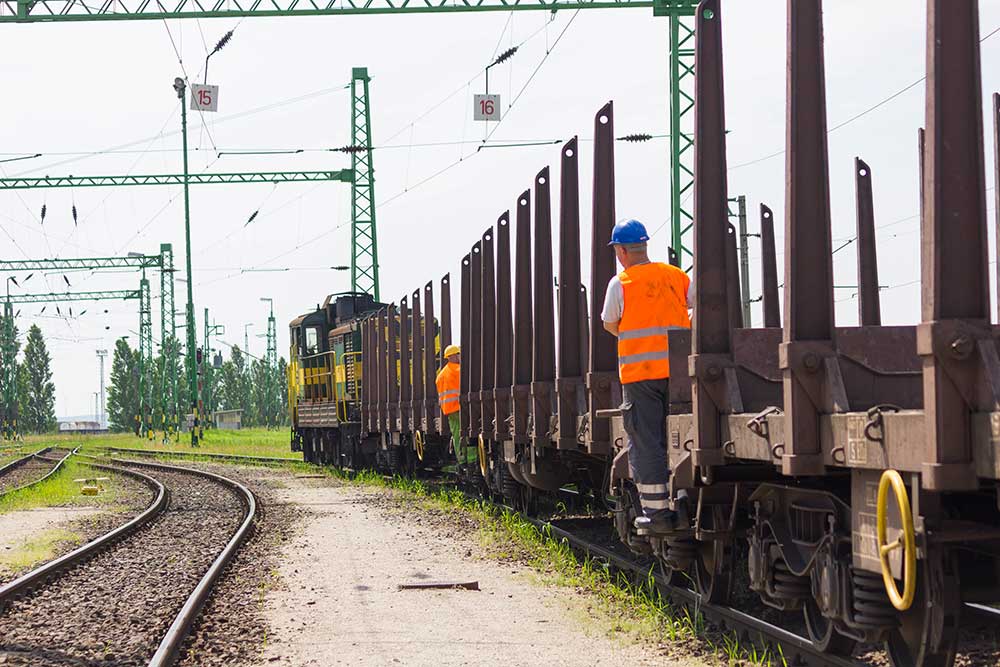Disclaimer: The information on our website is provided for general information purposes only. We make no representations or warranties of any kind, express or implied, about the completeness, accuracy, reliability, suitability or availability with respect to the website or the information contained on our website for any purpose. Any reliance on such information is therefore strictly at your own risk and we are not liable for any damages or losses arising out of or resulting from your reliance on any information contained on our website.
A locomotive firer is a vital position for the railroad industry. They are responsible for monitoring instruments on locomotives and watch for hazards, such as dragging equipment or obstacles on the track. They must be observant and alert of traffic signals at all times. Additional titles this position holds include assistant engineer and fireman..
Watch a video to learn more:
How to Become a Locomotive Firer
Locomotive Firers typically graduated from high school. According to O*NET OnLine, over 60% of the locomotive firers surveyed have attained their high school diploma or equivalent, 20% have earned a certification, and about 15% have taken some college classes. Skills are gained on the job for this career field, and many companies offer on-the-job training or have specific programs for their employees. Training usually includes locomotive mechanics, safety protocols, data tracking, documentation, and locomotive communication systems. Therefore, basic knowledge in transportation, public safety and security, mechanical skills, and documentation can help. You must also have good eyesight, practical communication skills, efficient problem-solving abilities, ability to stay calm in stressful situations, and have quick reaction abilities.
Job Description of a Locomotive Firer
A locomotive firer must be attentive and be very detailed oriented. These individuals are the vital safeguard for railroad transportation and those working in this industry. Locomotive firer inspect and monitor fluids, temperature, and pressure gauges to ensure that locomotive engines operate safely and efficiently. They also look for damaged or worn parts that may have occurred. Not only are they responsible for the train itself, but they monitor and communicate with other trains about the tracks, dragging equipment, or obstructions that may occur. Also, they work closely with engineers and montoir train signals. These train signals are essential in keeping everyone safe. Locomotives are the ones that interpret these and communicate it to the appropriate personnel. In emergencies, they may need to operate the locomotive as well.
Locomotive Firer Career Video Transcript
A variety of railroad workers help ensure that passenger and freight trains are in the right place at the right time, operating safely. Railyard engineers (also called hostlers) move locomotives between tracks to keep the trains organized and on schedule. They drive locomotives to and from maintenance shops or prepare them for the locomotive engineer. Some operate small locomotives called dinkeys. Other railroad workers focus on train safety.
Brake operators help couple and uncouple train cars. Signal operators install and maintain the communication signals along tracks and in the rail yard. Switch operators control the track switches in rail yards to ensure trains move safely between tracks.
Locomotive firers monitor train instruments and watch out for hazards on the track. Most rail employees work full-time. Since trains operate 24/7, many railroad workers work nights, weekends, and holidays. Rail companies typically require a high school diploma or equivalent and provide on-the-job training lasting from a few weeks to a few months, depending on the employer and the complexity of the job. Railyard engineers, and switch or signal operators may advance to become conductors or yardmasters.
Article Citations
Bureau of Labor Statistics, U.S. Department of Labor, Occupational Outlook Handbook, Railroad Workers.
National Center for O*NET Development. 53-4012.00. O*NET OnLine.
The career video is in the public domain from the U. S. Department of Labor, Employment and Training Administration.

